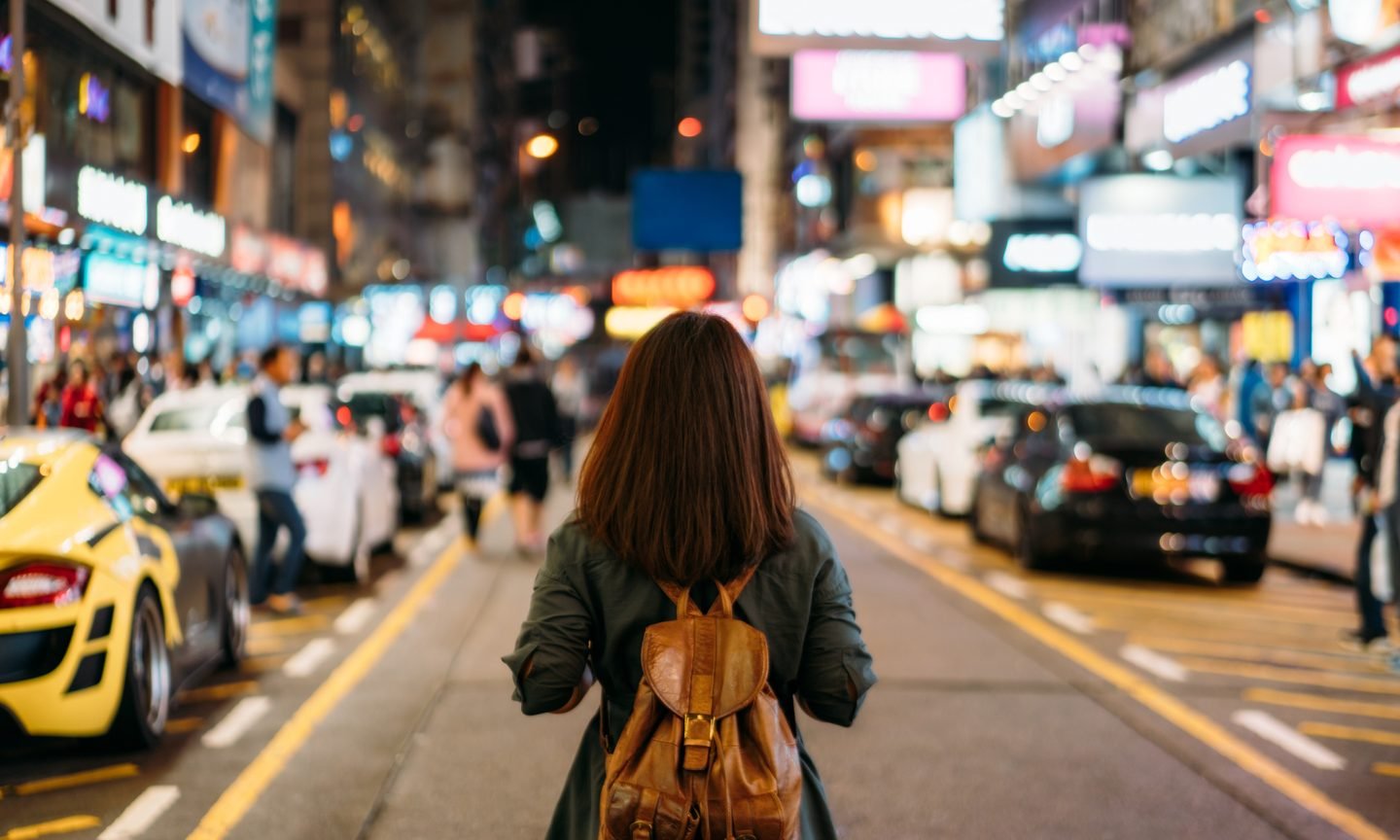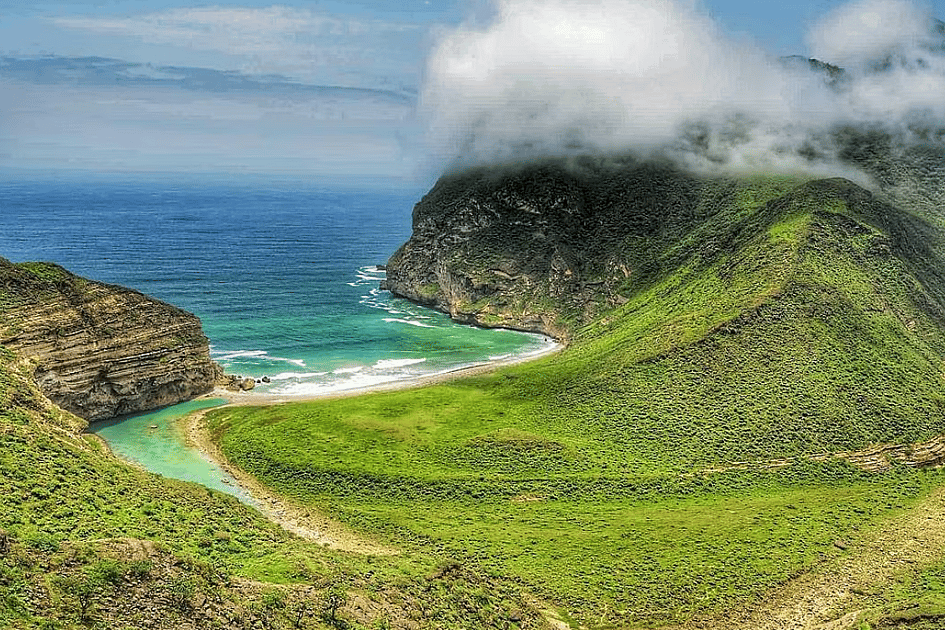Tips & Advices
8 Safety Tips for Solo Female Travel

A common question asked by women who want to travel is if solo female travel is safe. Some women wonder which destinations are safe and which aren’t. Some want to know if they can do it by themselves, even if close friends and family have told them it isn’t safe. If you’re a woman who has yet to travel solo, it’s easy to get caught up in the what-ifs — not to mention potentially talk yourself out of having an amazing solo travel experience.
As a digital nomad, I have traveled full time for three years, in many instances by myself. Solo travel experiences can be rewarding in ways that other experiences aren’t: You can push outside of your comfort zone and get to know your inner explorer. On your own, you might be inspired to be more open to life and new experiences. Traveling can be a great education.
So, if you’re a hopeful solo female traveler in search of safety tips, here’s some hard-won advice that’s helped me on all of my journeys.
1. Use taxis and rideshares safely
Most countries have ridesharing apps, like Uber, or their own version of a ride-hailing app you can use to request a taxi. Using Uber or a local app allows your location to be tracked and the fare to be standardized. Furthermore, you can often see ratings for the driver and follow along on the app to make sure you’re heading to your intended destination.
Most importantly, check that the license plate on the car you’re getting into matches the one from the app.
Try to use these apps rather than hailing a taxi on the street. If these apps aren’t available, use authorized taxis from the airport or have your hotel call you a taxi. If you’re staying at a short-term rental, ask the host for taxi recommendations.
2. Be alert when drinking and dating
Excessive drinking may inhibit your ability to make sound decisions. So if you’re heading out for the night on your own, let a friend or family member know where you’re going. You might even go so far as to share your real-time location via your smartphone.
New York-based traveler Christine Lee routinely lets others know her whereabouts when she’s traveling solo. “Make sure you share your live location with a roommate, friend or family member and/or tell a friend where you’ll be going so that someone knows your location at all times,” she says.
Similarly, if you’re going on a first date while traveling, meet in a public place. This way, you can easily leave if you’re not having a good time.
And when you’re out at bars or restaurants, don’t leave your drink unattended.
3. Look like you know where you’re going
Some destinations are safer than others, but as a general rule, avoid making yourself an easy target. When walking down the street, especially late at night, look like you know where you’re going.
If you’re lost, step into a cafe or store and look up directions on your phone. Have a purse that has a zipper closure and don’t leave it unattended.
Also make sure you have the local emergency numbers for where you’re traveling in case something does go wrong. Helen Simkins, who’s currently traveling solo in Portugal, abides by this tip.
“Before arriving in a country, always secure its 911-equivalent number in your phone. Keep in mind that 911 isn’t the emergency call number in other countries,” she says. “I save the general emergency number, police and hospital number in my favorites for quick access and save the hospital in my maps.”
4. Leave the Rolex at home
While it can be nice to wear your favorite bling, fancy jewelry or watches might draw unwanted attention. If you want to wear jewelry, purchase some costume jewelry to travel with or better yet, buy some local, relatively inexpensive jewelry to wear on the trip. This approach will help you not only blend in, but also look less like a target.
Many incidents of theft are crimes of opportunity; don’t give an offender a reason to consider you an easy target.
5. Use (and hide) your phone strategically
Some cities that are known to be dangerous have a higher prevalence of cell phone theft, especially if there is no Apple store in the country (iPhones are valuable on the local black market). If you’re planning on visiting one of these destinations, get a hidden passport holder belt you can wear around your waist. These little pouches fit inside your pants or skirt and aren’t visible. Keep your phone in there.
If you need to make a phone call or look up directions, step into a cafe or shop and use your phone inside.
6. Dress appropriately for the culture
If you’re traveling to a conservative country, bring clothing that will allow you to blend in. Be mindful of the culture and traditions of the country so that you don’t attract unwanted attention.
Even if you’re going somewhere hot, bring a few pieces of clothing that cover your knees and shoulders so that you feel comfortable venturing out and exploring.
7. Buy a local SIM card to avoid high roaming costs
If you’re traveling internationally, it’s smart from a money-saving perspective to purchase a local SIM card for the country you’re going to. Then, you’ll have mobile data and local calling, so you can feel connected. This tip is relatively simple, yet I often hear of people who just use their own U.S.-based phone plan and purchase data.
These U.S. data packs are often expensive and/or don’t provide 4G service. People end up putting their phones on airplane mode and using only free Wi-Fi so they save money and don’t use expensive data. Although you can use offline mode for some apps (like Google Maps and Google Translate), you aren’t able to use these services in real time.
Save yourself the hassle and simply buy a local SIM card. You want to be connected to the internet and have access to a phone (without paying high fees) in case you need to make a call, get in touch with friends or change locations at the last minute.
Also, being able to stay in touch with friends and family can help assuage their concerns about your solo travels.
8. Join solo female traveler Facebook groups
Traveling solo doesn’t have to mean being completely on your own for the duration of your trip. There are many Facebook groups geared toward solo female travel, like Girls Love Travel and the Digital Nomad Girls Community, both of which have thousands of members.
Join these groups to connect with other solo female travelers. You can post about where you’re thinking of traveling and get lots of tips from others who have been there. As a bonus, you might also make friends with women who are traveling to the same destinations.
Finally, enjoy your travels
Solo female travel is an incredibly rewarding experience. Keep these safety tips in mind when you venture abroad so you can have many memorable trips — with or without your friends.

Tips & Advices
Why Travel Insurance Can Be a Lifesaver for Your Trip, Find out now

Monday, July 21, 2025
Whether you’re embarking on a short weekend away or a lengthy journey across continents, travel insurance remains one of the most vital components of your travel preparations. Unexpected circumstances can quickly turn your perfect trip into an expensive ordeal, and the right insurance coverage can safeguard you against significant financial burdens.
What Exactly Does Travel Insurance Include?
A comprehensive travel insurance plan typically includes protection against:
- Trip cancellations and interruptions
- Flight or transport delays
- Lost, stolen, or delayed luggage
- Stolen cash, credit cards, passports, or other vital documents
- Medical emergencies, hospitalization, and repatriation expenses
Government guidelines across Ireland and the UK strongly recommend comprehensive travel insurance due to the potential high costs of medical care abroad. According to official government resources, the costs associated with emergency medical treatment or repatriation can be extraordinarily high, often amounting to thousands of euros.
Importance of Medical Coverage
Medical coverage is particularly crucial. Accidents or illnesses abroad are unpredictable and costly. Ireland’s official guidance underscores that hospital treatments or emergency flights back home can be extremely expensive without proper insurance. Even a simple travel insurance policy can ensure you’re not left with overwhelming bills and additional stress during an already difficult time.
Types of Travel Insurance Policies Available
Different travel needs require different insurance solutions. Here are the primary policy types to consider:
- Single-trip Policies: Ideal for occasional travelers planning one-off trips.
- Annual Multi-trip Policies: Beneficial for frequent travelers, offering year-round coverage.
- Specialist Insurance Plans: Tailored for specific traveler groups such as families, senior citizens, students studying abroad, and group travelers.
Official advice highlights matching your insurance coverage with your specific travel habits and personal circumstances to ensure maximum benefit and efficiency.
Cost Considerations
Travel insurance costs vary depending on factors like your destination, length of stay, age, and activities planned. According to governmental consumer protection resources, travelers should shop around to obtain the best policy at a fair price:
- Basic European Single-trip Coverage: Approximately €22, suitable for short trips.
- Enhanced Coverage: Includes additional protections such as cancellations, luggage coverage, and up to €5 million in medical benefits, typically costing around €42.
- Annual Multi-trip Coverage: Generally starts at about €80 for Europe and upwards of €120 for global coverage.
It’s important to remember that lower-priced policies typically feature higher deductibles and fewer inclusions.
Additional Cover for Adventure Activities
Standard travel insurance usually excludes high-risk sports or adventure activities. Official Irish and UK government travel advisories clearly indicate the necessity of additional insurance for activities like skiing, scuba diving, skydiving, paragliding, or mountain climbing. Always confirm coverage specifics and add additional adventure sports coverage if needed.
Coverage for Extraordinary Situations
Common events such as extreme weather, natural disasters, strikes, and civil disturbances are typically not covered by standard travel insurance policies. Irish and UK governmental consumer advisories suggest adding specialized disruption coverage to protect yourself fully against these scenarios.
European Health Insurance Card (EHIC) – Important but Limited
Travelers within the EU should carry their European Health Insurance Card (EHIC), offering access to essential healthcare at reduced costs or sometimes free within public facilities. However, government websites clearly emphasize that the EHIC does not cover costs such as private medical care, repatriation flights, lost baggage, or stolen belongings. Therefore, comprehensive travel insurance remains essential.
Essential Tips Before Purchasing Your Policy
- Obtain your insurance immediately upon booking your travel to activate trip cancellation benefits.
- Always disclose existing medical conditions to avoid coverage disputes.
- Determine whether specific destinations or activities require extra coverage.
- Consider adding excess waivers if you wish to avoid out-of-pocket expenses for minor claims.
- Frequent travelers should evaluate annual multi-trip coverage for better overall value.
- Always read policy documents carefully to understand exactly what’s included.
Final Thoughts
Travel insurance is more than merely optional; it’s the responsible thing to do when you’re planning to travel. Good coverage can protect you against expensive surprises and provide crucial assistance in an emergency while you are overseas. The combination of EHIC and a good travel insurance policy is considered by UK government authorities as the ideal approach to SAFE Guarding your travels.
Tips & Advices
Now, India Joins Canada, UK, Australia, UAE, Singapore, and USA To Embrace CyberSafe Travel Era as TripJack and BOXX Launch Digital Tourism Security Solution, Here’s More

Sunday, July 20, 2025
When travelers from busy hubs like Mumbai, Delhi or Bengaluru are planning their next trip, they often overlook the unseen threats lying in wait online. And yet in a time when we board planes, show passports, make hotel reservations, and consummate credit card purchases on our smartphones, it is now as critical to our physical safety that we be safe from predators in the digital sphere. So for the first time, TripJack, India’s largest B2B travel platform, has collaborated with global specialist BOXX Insurance to launch CyberSafe – a revolutionary cyber defense suite to protect travelers against digital crime. Not only does this drive establish India as a progressive tourism market, but also raises the bar for travel safety globally.
Add Digital Security To Your List Of Travel Essentials
India’s tourism sector has seen spectacular growth in recent years with governments pushing for Safe and Honourable Tourism guidelines to safeguard visitors and locals. Historically, the datum for attention would be on public health, on crime prevention, on physical infrastructure. What’s been lacking until now is a comprehensive approach to protecting against digital exploitation — including identity theft, financial fraud and phishing scams — especially for travelers.
CyberSafe fills that gap. It offers real-time identity monitoring, dark web alerts, access to Wi‑Fi advocacy specialists, restoration support, and resources that help educate travelers about threats before they escalate to incidents. In essence, CyberSafe is a “digital first aid kit” for travelers, that could help lessen the emotional and financial cost of cybercrime while overseas.
Facing an Escalating Digital Threat
According to studies, 35% of Indian travelers have been a victim of a cybercrime while overseas, and internationally more than a quarter of all international travelers are affected by a cybercrime during their trips. Those numbers reflect the changing nature of travel — routine activities like sending money, looking up personal facts or booking a tour can pose risks to the traveler.
TripJack now delivers digital defenses to its traveling customers with the help of BOXX Insurance, a European and North American insurer that specializes in cyber-incident response for business travelers. This step places the Indian travel ecosystem right at the top of integrated travel protection: a combination of flight and health insurance coupled with digital trust.
Strengthening India’s Travel Framework
The Indian government(Ministry of Tourism) focuses on the safety of travellers and consumer rights. CyberSafe is in line with these strategic efforts, providing an extra dimension of safety within the framework of e-tourism. This partnership also contributes to the observance of legislations that encourages information exchange, emergency response, and ICT security such as the Safe and Honourable Tourism Code of Conduct.
At the same time, the nut on the job done by cyber security agencies including CERT-In (Computer Emergency Response Team India) to secure the national digital infrastructures has been tightened. With a traveler-centric service like CyberSafe, national capability is translated into personal confidence: cyber protection you can take with you, and take to the bank.
CyberSafe: What It Means for Travelers, and Industry
For travelers, specifically holiday-makers in places such as Phuket, Maldives, Dubai, or Barcelona, CyberSafe provides that peace of mind by completing the digital chain – when they first come until after they leave. For travel agents and service providers, it becomes a powerful differentiator — a way to demonstrate they really care for travelers well-being rather than just the journey itself.
With more than 72,000 travel agents on their platform, TripJack in India will now provide CyberSafe in their bundled travel deals. This would enable agents in Tier 2, Tier 3 and metro cities to offer a superior customer experience while safeguarding confidential information and digital assets.
Enhancing Tourism Brand and Trust
In global tourism, in which a destination’s reputation and a traveler’s confidence are inextricable, India’s action sends a clear signal: The country is in the business of not only hospitality but also comprehensive care. Securing borders is a matter of national ambition now on land, in the air and at sea —& this day & age, digitally.
With India pushing for a better ranking in global tourism stats and more business travelers and digital nomads making their way here, having CyberSafe as part of the travel checklist improves both the public perception and competitive edge.
A New Era of Foreign Travel Security
This is more than a stand-alone product, it is part of a broader transformation in travel policy and practice. Canada, the UK, Australia and members of the EU are all coming to expect citizens to guard not only their own health but also data while traveling. India’s CyberSafe campaign dovetails nicely with these current global standards.
As governments prioritize keeping citizens safe when they are outside the country (and safe can mean protection not just from physical harm, but also from cyber injury), travel safety now encompasses ALL risk factors. This is consistent resourcing with best practice consumer protection and digital stewardship globally.
Conclusion: Digital Care and Travel Culture
Travel has always been about more than luggage weights — it’s about curiosity, resilience and trust. Now a traveler’s safety can hinge on invisible digital defenders. CyberSafe acknowledges that fact and provides essential tools for travelers to concentrate on discovery, rather than exposure.
By incorporating digital safety into tourism, TripJack and BOXX are illuminating a new kind of care — one that protects passports and phone data plastered together. This is where tourism intersects with technology and trust blooms. And within that is true freedom for travelers.
Tags: asia-pacific, Australia, Bengaluru, BOXX Insurance cybersecurity travel, Canada, CyberSafe TripJack, Delhi, digital safety tourism, Dubai, global tourism, India, India travel cyber protection, london, mumbai, New York, north america, Singapore, south asia, southeast asia, sydney, Toronto, travel insurance India 2025, UAE, UK, United Arab Emirates, United Kingdom, United States, usa
Tips & Advices
Khareef season: Omani authorities issue safety tips for travelling to Dhofar after crash

In the midst of Salalah’s Khareef season, many UAE residents drive to Oman to experience the lush green landscape as the monsoon rain touches the land.
While the rains bring cooler temperatures and helps create unforgettable moments, it can also bring about safety hazards, particularly near water bodies. Stressing the need to exercise caution, Omani police shared safety tips for those travelling to Dhofar:
Stay up to date with the latest news. Follow KT on WhatsApp Channels.
-
Do not park your vehicle in unsafe places, such as near slopes. This puts your life and the lives of others at risk. Be responsible and stay away from dangerous locations.
-
Never leave children unattended near ponds and bodies of water, as even a moment of inattention can cost you
-
Keep the vehicles clean, and avoid dirty cars. Do not obscure the plate number, as owners can be held legally accountable for this
-
Passengers must not lean out of the window or roof of the car while driving recklessly; this can also expose you to legal accountability.
In a tragic accident in early July, a multi-vehicle collision in Dhofar killed 5 people, including two Omanis and three Emiratis who were from the same family. The crash injured eleven others, including two Omanis and nine Emirati citizens of which five are children.
The Emirati family members who died in the crash are a couple, and the wife’s mother. The couple’s eight-month-old daughter was hospitalised in Oman.
The family had travelled to Salalah for a summer break, but the tragic accident occurred just 12 hours after they left the UAE.
After the collision, UAE travellers spoke to Khaleej Times, sharing precautions to take while planning the journey, such as ensuring the vehicle is in good condition.
They also shared safety advice for driving through the tricky terrain, such as checking fuel levels, and driving at a speed lower than the speed limit in some areas.
-

 AI in Travel18 hours ago
AI in Travel18 hours agoAI Travel Revolution: Must-Have Guide to the Best Experience
-

 Brand Stories1 week ago
Brand Stories1 week agoHow Elon Musk’s rogue Grok chatbot became a cautionary AI tale
-

 Brand Stories2 weeks ago
Brand Stories2 weeks agoVoice AI Startup ElevenLabs Plans to Add Hubs Around the World
-

 Asia Travel Pulse2 weeks ago
Asia Travel Pulse2 weeks agoLooking For Adventure In Asia? Here Are 7 Epic Destinations You Need To Experience At Least Once – Zee News
-

 AI in Travel2 weeks ago
AI in Travel2 weeks ago‘Will AI take my job?’ A trip to a Beijing fortune-telling bar to see what lies ahead | China
-

 Brand Stories2 weeks ago
Brand Stories2 weeks agoChatGPT — the last of the great romantics
-

 Destinations & Things To Do18 hours ago
Destinations & Things To Do18 hours agoUntouched Destinations: Stunning Hidden Gems You Must Visit
-

 The Travel Revolution of Our Era1 month ago
The Travel Revolution of Our Era1 month agoCheQin.ai Redefines Hotel Booking with Zero-Commission Model
-

 Brand Stories2 weeks ago
Brand Stories2 weeks agoHumans must remain at the heart of the AI story
-

 Brand Stories2 weeks ago
Brand Stories2 weeks agoChildproofing the internet is a bad idea